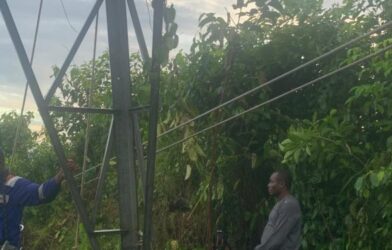Ghana’s grain sector is facing a deepening crisis as more than 100,000 metric tonnes of maize and rice from the 2024 harvest remain unsold, leaving farmers in debt and threatening the survival of local processors.
The Chamber of Agribusiness Ghana (CAG) has warned that the glut, worsened by an influx of cheap imports and rampant smuggling of substandard grains, is destabilising the sector. Many farmers, unable to store their produce or access ready markets, have been forced to sell at prices below their production cost, pushing them further into financial distress.
With the 2025 harvest season just weeks away, concerns are mounting that the situation could escalate, collapsing entire subsectors of the maize and rice industry. Already, some mills and processing plants are operating far below capacity, while others have shut down completely due to a lack of sales.
CAG pointed to the unchecked smuggling of rice and maize across Ghana’s borders as a key driver of the crisis. These grains, often of questionable quality, evade duties and quality checks but enter local markets at artificially low prices. The Chamber also expressed alarm over alleged collusion between smuggling syndicates and corrupt border officials, stressing that the government is losing critical revenue through tax evasion.
“This not only jeopardises farmer incomes but also weakens the domestic value chain, making Ghana increasingly dependent on foreign imports and eroding food sovereignty,” the Chamber noted.
The Chamber has called for urgent intervention, including tighter border controls, guaranteed minimum prices for local grains, and a mandate for state institutions such as the School Feeding Programme, Armed Forces, and Prisons Service to source from Ghanaian farmers. It is also pushing for financial support to millers so they can purchase grains at harvest, alongside long-term investment in rural infrastructure such as storage facilities, roads, and irrigation systems.
According to CAG, strengthening farmer cooperatives is equally crucial to improve productivity and competitiveness against imports. Without these interventions, Ghana risks watching its maize and rice subsectors collapse, leaving the country vulnerable to external shocks and undermining national food security.
“The time to act is now. Investing in local rice and maize is investing in Ghana’s economic independence, jobs, and food sovereignty,” the Chamber stressed.












